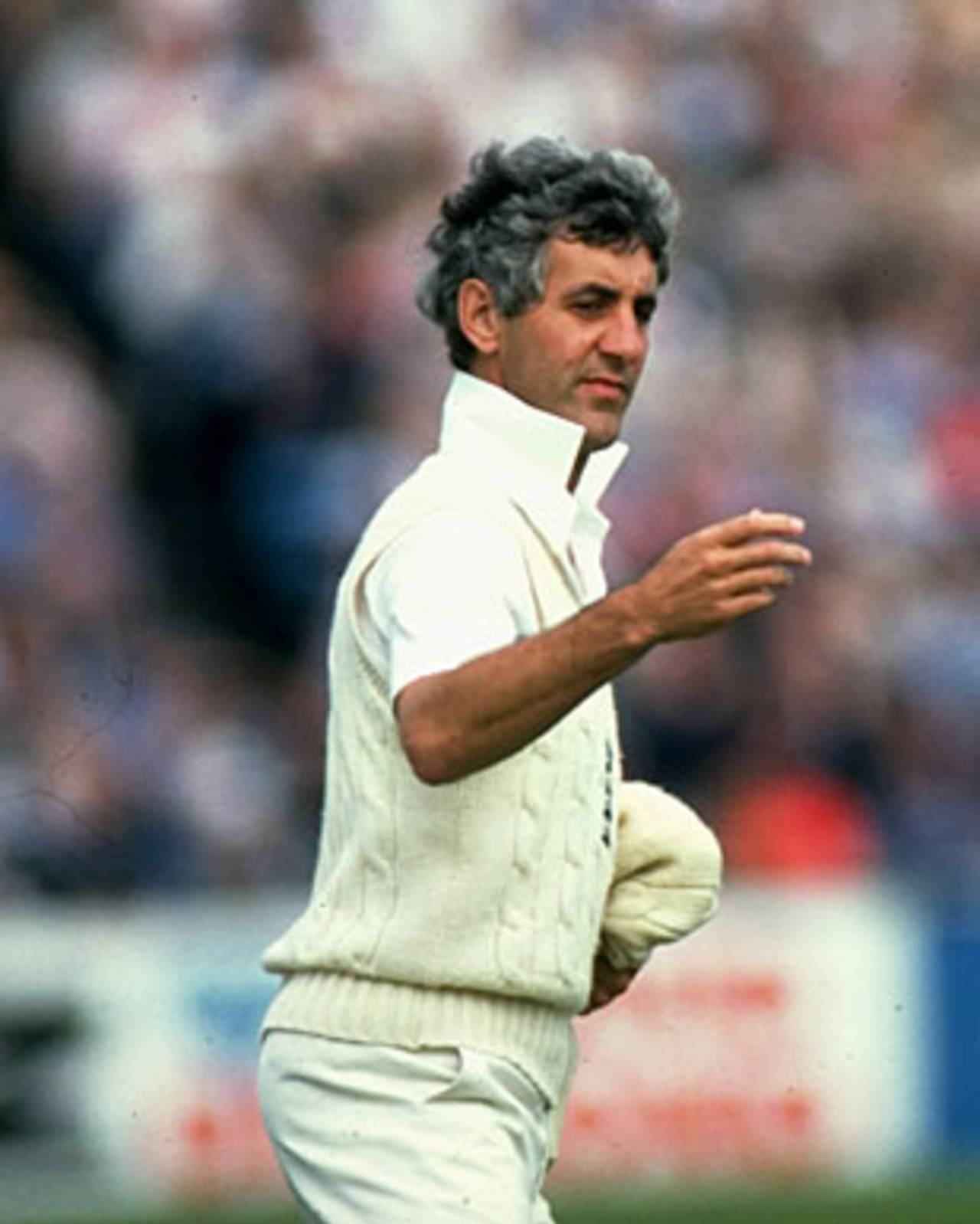Lessons for leaders
Brearley, Ranji, EM Rose, and the art of captaincy
Suresh Menon
09-Aug-2009

The only drawback of Brearley's book is that it is clearly meant for international captains • Adrian Murrell/Getty Images
Of all the arts of cricket, there is one that has been invested with a special glow - captaincy. Yet, amazingly, there are few good books on the subject, especially considering that captains seldom seem to agree on anything (which is what makes for interesting discussions on the subject, and pays the salaries of columnists and television experts).
A successful player need not be a successful captain, and as Mike Brearley has shown, the reverse is also true. It is no coincidence, therefore, that the bible on the subject is Brearley's The Art of Captaincy. If it has a drawback it is that it is so clearly meant for the international captain, and how many of us are ever going to lead an international side?
Brearley's book stands apart from the few others on the subject for its authority, its simplicity, and for the range of personal examples the writer quotes. The bibliography mentions just nine books, including Ranjitsinhji's The Jubilee Book of Cricket, Don Bradman's The Art of Cricket, Ray Illingworth's Captaincy and Colin Cowdrey's MCC.
The Ranji book devotes over 40 pages to captaincy. One of its more interesting bits of advice is this: "There is a humorous saying that a captain's supreme duty is to win the toss. The chances are about even. The only fact with a glimmer of science about it is to call tails because the head-side of most coins is slightly the heavier, and therefore the more likely to fall undermost." Do we have any statistics on the subject?
I remember Sunil Gavaskar using a similar argument while speaking on television, although he might have been pulling his fellow commentator's leg. In any case, it didn't work too well for him. In 47 Tests as captain, he won the toss 22 times. Perhaps he hadn't read the Ranji book!
Brearley's book does not mention EM Rose's How to Win At Cricket, or the Skipper's Guide because that book was published three years later. Yet for your average club and school captain, the Rose book would probably be more useful since it speaks to him directly, offering practical advice on situations that do not arise in Test matches at all.
Great captains take more chances than the good ones; funnily enough, so do poor captains. The difference is that the former seem to have more luck
What do you do, for instance, when your players are held up by traffic or overnight revelry and are yet to turn up at the start of a match? Is it wiser to bat first (as most teams would do) or field? Rose makes the point that, "in a perfect world, and to save runs, one could manage adequately with six fielders apart from the bowler and wicketkeeper".
Since this is a book on how to win, there is a detailed chapter on the cricketing and psychological factors that lead to draws. There is, too, a chapter on enjoying captaincy. "Cricket should be fun," says Rose, "and captaincy is such a large part of the game that it should be the greatest fun of all, transcending as it does all the other arts of the game."
Part of the fun is in taking chances that make the captain look like a genius when they work out. Great captains take more chances than the good ones; funnily enough, so do poor captains. The difference is that the former seem to have more luck. Their decisions on the timing of declarations or change of tempo work out more often.
"There are only two types of draw," writes Rose, "One, when your side is on a hiding to nothing and you manage to get away with it. Well done! The other is when you fail to win. You then get all your team together and apologise profusely, for it is your fault."
What is the most valuable asset a captain can possess? Tactical sense, technical understanding, ability to read a game, instinct, luck must all be taken as given. In Richie Benaud's much-repeated words, captaincy is ninety percent luck and ten percent skill, but "don't try it without that ten percent." No piece on captaincy is complete without the Benaud quote.
Suresh Menon is a writer based in Bangalore